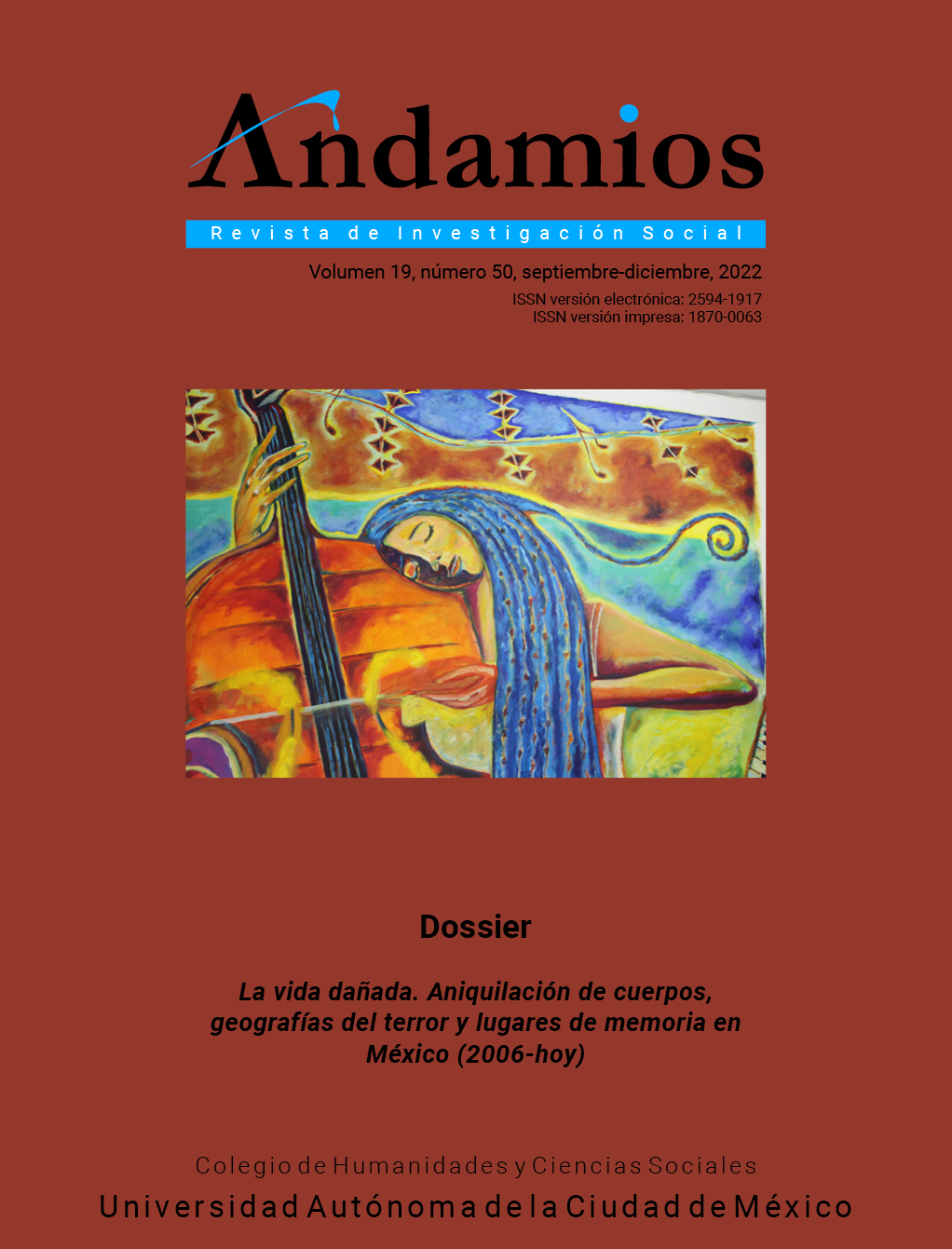The logic of cruelty and forced disappearances in Mexico
DOI:
https://doi.org/10.29092/uacm.v19i50.944Keywords:
damaged lives, ethics, logic of cruelty, moral grammar, Forced disappearancesAbstract
The article proposes to discuss the scope of the moral discourse of the logic of cruelty in forced disappearances during the six-year administration of Felipe Calderón. It also seeks to identify practices that can reverse this grammar. To this end, two perspectives are used: a philosophical-anthropological one and a political-journalistic one, whose methodological structure posits four analytical axes. These include the ethical and moral distinction to determine what the logic of cruelty involves; a political-journalistic analysis to contextualize Calderón’s “war on drug trafficking,” a turning point in the increase in forced disappearances; the instrumentality of moral grammar and the logic of criminalization in the process of forced disappearance; and the ethical response of the “searchers” that points to the transgression of the logic of cruelty.
Downloads
Published
Issue
Section
License
This Journal is licensed under Creative Commons Mexico 2.5. It is allowed to reproduce and disseminate the contents of the Journal for educational or research purposes, not for profit, as long as they are not mutilated and cite the source (Andamios, Revista de Investigación Social) and the author.
The copyright of the articles published in Andamios, Revista de Investigación Social are transferred by the author(s) to Universidad Autónoma de la Ciudad de México when the originals have been accepted, so that they are published and distributed both in the printed and electronic versions of the Journal. However, as established by law, the author(s) retains their moral rights. The author(s) will receive a form of assignment of copyright that they must to sign when their original has been accepted. In the case of collective articles, the signature of one of the authors will suffice, provided that the latter has obtained the consent of the others.
Authors may use the material of their article in other works or books published by themselves, with the condition of quoting Andamios as the original source of the texts.
The articles contained in this publication are the responsibility of their authors and do not compromise the official position of Andamios, Revista de Investigación Social of the Universidad Autónoma de la Ciudad de México.


